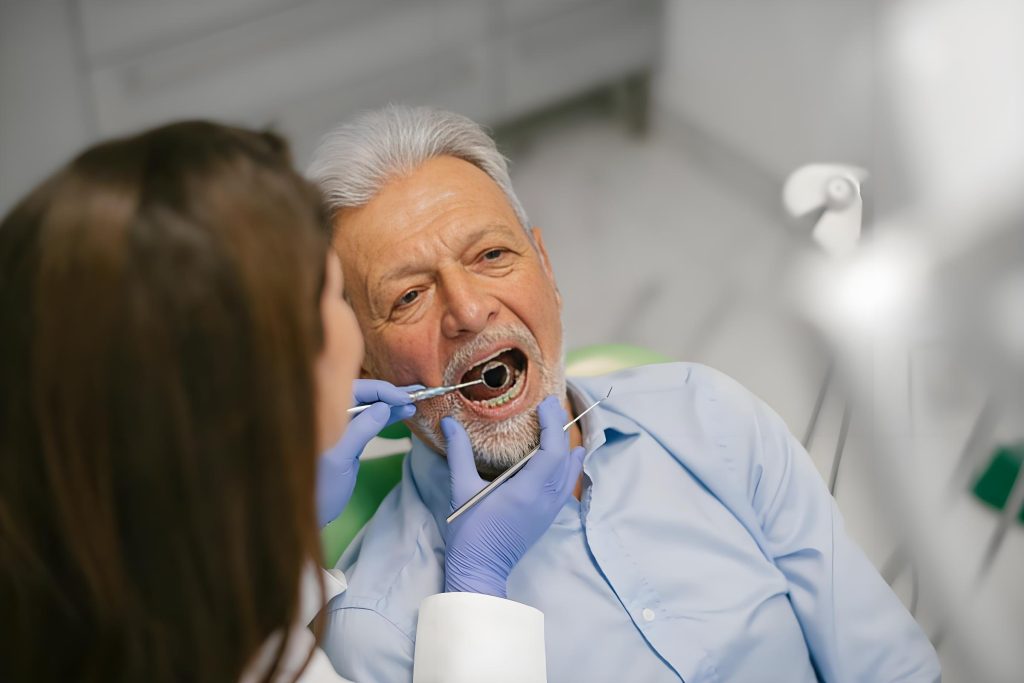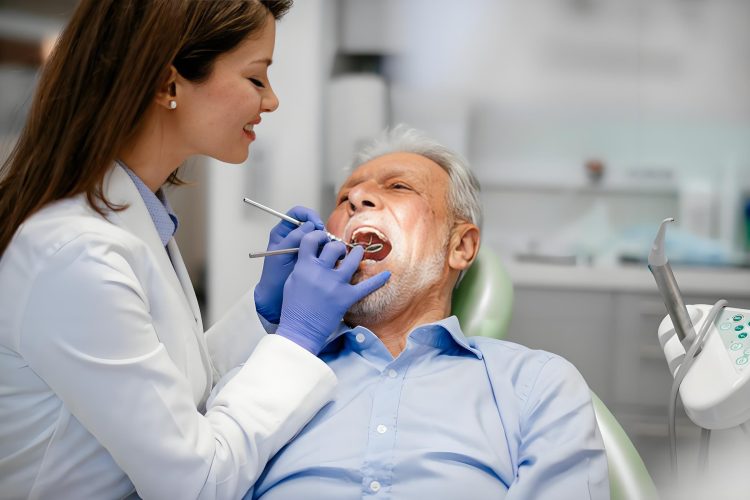As we journey through the various stages of life, each decade brings its own set of challenges and adjustments. For the elderly, maintaining health becomes an intricate dance of routine, vigilance, and sometimes, a bit of extra care. Among the myriad aspects of health that deserve attention, oral health often stands out as a crucial yet frequently overlooked domain. It’s not merely about preserving a bright smile or fresh breath; it’s about safeguarding overall well-being and quality of life. This article delves into the undeniable importance of oral health for the elderly, exploring how it impacts their daily lives, physical health, mental well-being, and social interactions.

1. The Gateway to Overall Health
The mouth serves as a microcosm of the body, reflecting overall health and sometimes indicating underlying medical conditions. For seniors, maintaining oral hygiene is fundamental because poor oral health can exacerbate or even contribute to systemic issues such as heart disease, diabetes, and respiratory infections.
- Heart Disease: Research has shown a correlation between gum disease (periodontitis) and heart disease. Inflammation and bacteria from infected gums can enter the bloodstream, potentially damaging blood vessels and contributing to atherosclerosis.
- Diabetes: Poor oral health can exacerbate diabetes by making it harder to control blood sugar levels. Infections in the mouth can lead to increased insulin resistance.
- Respiratory Issues: Bacteria from the mouth can be aspirated into the lungs, increasing the risk of pneumonia, especially in elderly individuals with weakened immune systems.
Regular dental check-ups and thorough cleaning can help mitigate these risks, ensuring that the mouth remains a healthy gateway to the body.
2. Nutrition and Digestion
Healthy teeth and gums are essential for proper chewing and digestion. As we age, our teeth may weaken, gums may shrink, and the risk of tooth loss increases. This can lead to difficulty in eating certain foods, particularly those that are vital for nutrition such as fruits, vegetables, and lean proteins.
- Malnutrition: Poor oral health can lead to a diet that is limited in variety and nutritional value, increasing the risk of malnutrition and weight loss.
- Digestive Issues: Inadequate chewing can overload the stomach, leading to digestive discomfort and problems like acid reflux.
Dental solutions like dentures, implants, or crowns can restore functionality, enabling seniors to enjoy a balanced diet and maintain optimal nutrition.
3. Mental Well-being and Self-Esteem
The impact of oral health on mental well-being is profound. A healthy smile boosts self-esteem and confidence, while poor oral health can lead to feelings of embarrassment, social withdrawal, and depression.
- Social Anxiety: The fear of being judged or embarrassed by bad breath or visible dental issues can lead to avoiding social situations, isolating individuals from friends and family.
- Depression: Chronic pain, discomfort, and the inability to eat favorite foods can contribute to feelings of helplessness and depression.
Addressing oral health issues promptly can have a transformative effect on mental well-being, restoring a sense of normalcy and joy in social interactions.
4. Cost-Effective Prevention
Treating oral health problems early is far more cost-effective than dealing with advanced issues that require extensive and expensive interventions. For seniors on fixed incomes or with limited healthcare coverage, preventive care is paramount.
- Routine Check-ups: Regular dental visits for cleanings, exams, and X-rays can catch problems before they escalate.
- At-Home Care: Simple habits like daily brushing, flossing, and using an antiseptic mouthwash can prevent cavities and gum disease.
Investing in preventive oral health care can save significant amounts of money in the long run and prevent unnecessary suffering.
5. Adapting to Age-Related Changes
Aging brings about physiological changes that can affect oral health. Dry mouth, reduced salivary flow, and medication side effects are common among the elderly, making them more susceptible to oral infections and decay.
- Dry Mouth: Saliva plays a crucial role in cleaning the mouth and neutralizing acids. Dry mouth can be managed through increased fluid intake, sugar-free chewing gums, or artificial saliva products.
- Medication Management: Certain medications can cause dry mouth or decrease the effectiveness of oral bacteria defenses. Consulting with both a dentist and a physician about medication side effects is crucial.
Adapting oral care routines to accommodate these changes can significantly enhance oral health and quality of life.
The Role of Caregivers and Healthcare Providers
Caregivers and healthcare providers play a pivotal role in supporting the oral health of elderly individuals. They should be knowledgeable about common oral health issues affecting seniors and encourage preventive care.
- Education: Providing education on proper oral hygiene techniques tailored to aging mouths.
- Advocacy: Helping navigate the healthcare system to ensure access to dental services, including those covered by Medicaid, Medicare, or community dental programs.
- Collaboration: Working closely with dental professionals to create personalized care plans that address specific oral health needs.
Conclusion: Preserving Smiles and Well-being
In the tapestry of life, each thread counts, and oral health is a vital strand in the fabric of well-being for the elderly. It’s not merely about teeth and gums; it’s about maintaining dignity, fostering social connections, and ensuring overall health. By prioritizing oral health, we empower seniors to lead fulfilling lives, filled with laughter, love, and the joy of good food shared with loved ones. Let us commit to preserving those precious smiles, for they are the windows to the souls of our elders, reflecting the rich stories and wisdom they hold.













































Discussion about this post